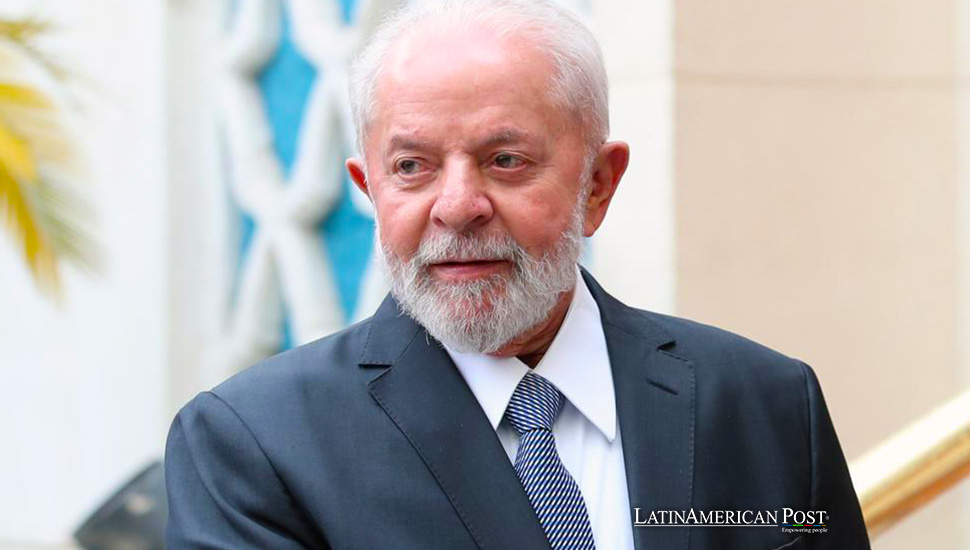Echoes of Conflict: Lula da Silva’s Controversial Comments Stir Diplomatic Tensions with Israel

Brazilian President Luiz Inácio Lula da Silva’s comparison of the Gaza conflict to Nazi genocide has sparked a diplomatic rift with Israel, emphasizing the delicate balance of historical memory and current geopolitical realities.
The Historical Echo: President Lula’s Controversial Remarks on Gaza
The recent comments made by Brazilian President Luiz Inácio Lula da Silva, likening the conflict in Gaza to the Nazi genocide during World War II, have ignited a firestorm of controversy, leading to a stern rebuke from Israel. This incident is not just a diplomatic spat between two nations but a reflection of the complex interplay between historical memory, political rhetoric, and the ongoing struggles for peace and justice in the Middle East and beyond. It also underscores the broader challenges Latin American countries face in their foreign relations with the rest of the world.
President Lula’s remarks, made at the 37th African Union Summit in Addis Ababa, were intended to criticize the scale of violence in the Gaza conflict. However, they were met with outrage by Israel, with Foreign Minister Israel Katz declaring Lula persona non grata until such comments were retracted. Katz’s response highlights the deep sensitivity around the Holocaust, an event that represents one of the darkest chapters in human history, and the concern over its comparison to contemporary conflicts.
This incident emulates the tightrope walk of international diplomacy, where words carry the weight of historical atrocities and current suffering. The Holocaust, in which the Nazi regime systematically murdered six million Jews, occupies a unique place in the global collective memory, serving as a stark reminder of the depths of human cruelty. Comparisons to this genocide are fraught with tension, often seen as diminishing the unique horror of the Holocaust or misappropriating its legacy.
Patterns of Relations: Latin America’s Historical Context
The diplomatic fallout between Brazil and Israel over Lula’s comments is not an isolated event but part of a larger pattern of complex relations between Latin American countries and Israel. Latin America has a diverse history with Israel, marked by periods of close cooperation and moments of tension, influenced by domestic politics, the Arab-Israeli conflict, and shifting global alliances. For instance, countries like Argentina and Chile have significant Jewish and Palestinian diaspora communities, making their diplomatic stances on Middle Eastern politics matters of foreign and domestic policy.
Moreover, this incident sheds light on the broader issue of how nations remember and interpret history. The Holocaust is universally condemned, yet its lessons and legacy are often invoked in contemporary political debates, sometimes controversially so. This raises important questions about the responsibilities of political leaders in drawing parallels between past and present atrocities, the sanctity of historical memory, and the potential for such comparisons to either enlighten or inflame current conflicts.
The Gaza conflict, mentioned by Lula, has been a source of intense international debate and scrutiny. The war began with an incursion by Hamas, a group designated as a terrorist organization by Israel, the United States, and the European Union, among others. The subsequent Israeli military response has been devastating, with significant loss of life and displacement, according to reports from both Israeli and Palestinian sources. This tragedy, like the Holocaust, involves profound human suffering and raises urgent questions about war, peace, and the protection of civilians in conflict zones.
Latin American Diplomacy: Balancing Acts in the Middle East
Latin American countries, including Brazil, have historically navigated a complex web of alliances and interests in their foreign policies toward the Middle East. These nations have sought to balance their relationships with both Israel and Palestinian authorities, often advocating for peace and negotiation while also supporting Palestinian rights. The reaction to Lula’s comments from Israel highlights the challenges faced by Latin American leaders in addressing Middle Eastern conflicts, where historical sensitivities and the realities of contemporary geopolitics intersect.
This episode also connects to a broader conversation about the role of Latin American countries in global diplomatic efforts, particularly in regions fraught with long-standing conflicts like the Middle East. Under leaders like Lula, Brazil has aspired to play a more significant role on the world stage, advocating for peace and dialogue in international disputes. However, as this incident illustrates, such ambitions are often tested by the complexities of historical memory and the difficulties of contemporary geopolitics.
Also read: Lula da Silva Bets On A South American “Euro”. How Feasible Is It?
The diplomatic rift between Brazil and Israel over President Lula’s comments is a stark reminder of the power of words in international relations and the importance of historical context in understanding and addressing current conflicts. It also reflects the ongoing struggle of Latin American countries to forge a path in global diplomacy that respects the past while addressing the pressing challenges of the present. As nations grapple with these issues, the lessons of history and the imperatives of peace remain central to the quest for a more just and stable world order.





